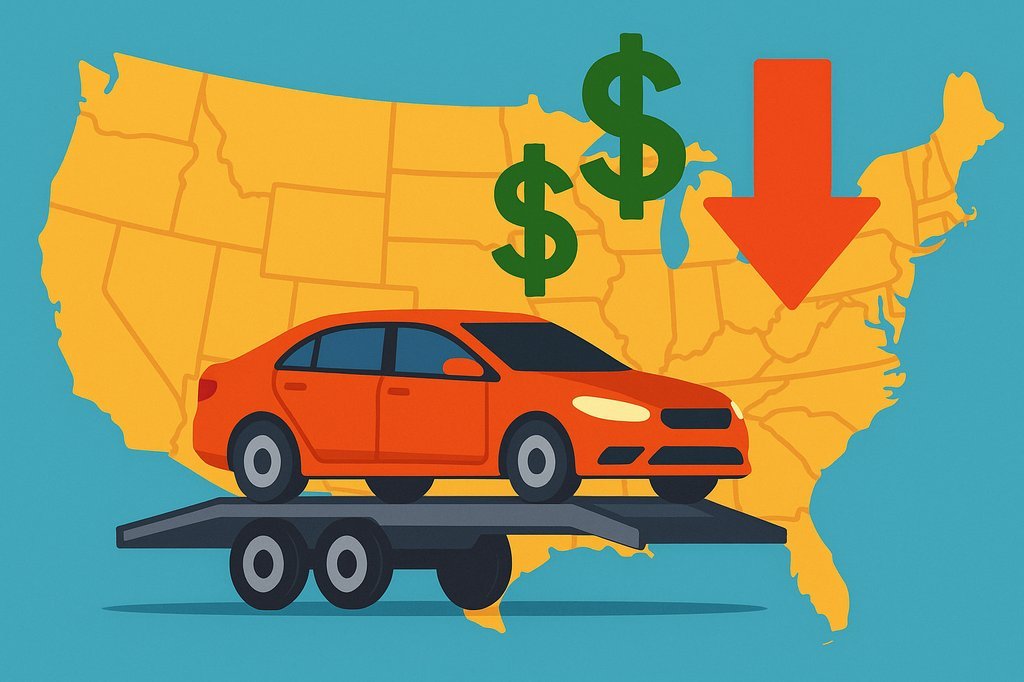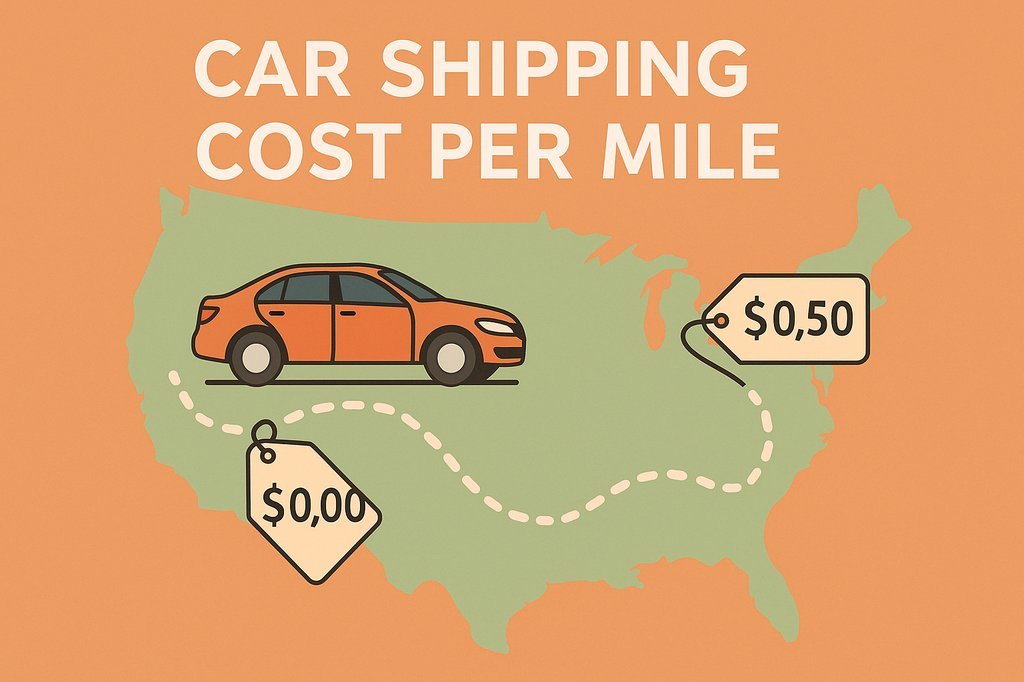When people first reach out to move a vehicle, the one thing they want to know right away is the cost. The trouble is that the answer isn’t fixed. A quote depends on several moving parts—distance, timing, type of service, and even where the pickup and delivery happen. I’ve handled countless jobs where two nearly identical cars ended up with different rates simply because of the route or the time of year. Let me walk through the main things that shape your price so you’re not left guessing.
Factors affecting car shipping quotes
The distance of the trip plays the largest role, but other details quickly come into play. Vehicle size and weight matter because a compact sedan takes less room on a trailer than a lifted truck. Routes between major cities often cost less than remote paths because carriers run them every week. The type of transport is another factor. Open carriers keep costs lower, while enclosed trailers add extra protection but raise the bill. Pickup conditions also affect things. If a truck can’t reach your street and has to arrange a different meeting spot, the driver loses time, and sometimes the quote reflects that. Lastly, season matters. Summer, holidays, and college relocation periods are busy, and higher demand pushes rates up. To compare options in detail, take a look at Vehicle transport options.
Quotes also change depending on lead time. Booking a week or two in advance usually locks in steadier pricing. Last-minute requests can still be covered, but you’ll likely pay more. That’s because dispatchers have to place your car as an urgent load to catch a driver quickly.
Price per mile for car shipping
Most people assume the cost is just miles multiplied by a flat number, but carriers don’t work that way. Short routes under 500 miles often look pricey per mile because the loading, inspection, and scheduling all take the same effort as a long haul. A 300-mile run may come out to $1.20 to $1.50 per mile, which totals about $400 or more.
For longer trips of 1,500 miles or more, the per-mile number drops. Coast-to-coast moves often land around $0.50 to $0.75 per mile. That means a 2,500-mile job might total $1,200–$1,600. So yes, the total is bigger, but the per-mile number looks lower. Carriers balance fuel, labor, and space on the trailer against how many cars they can fit. That’s why two people with different routes can see very different math on their quotes.
Car shipping rates and fees
Beyond the core rate, there are adjustments that can appear. Non-running vehicles need special equipment to load, often a winch, and that adds cost. Oversized vehicles take more space on a trailer and reduce how many other cars fit, so they cost more to move. Remote areas sometimes add a surcharge because drivers burn more fuel and time reaching them. Last-minute bookings can also carry a premium because dispatch has to raise the offer to attract a driver quickly.
Insurance is part of every legitimate quote, but the coverage limits differ. Always ask for the carrier’s policy and confirm it covers the full value of your car. At pickup and delivery, you’ll walk around the car with the driver and mark any scratches or dents on the inspection sheet. Those reports, along with your photos, are your proof if you ever need to file a claim. For more on how to get the car ready so inspections are easy, see How to ship a car.
Cost to ship a car across country – FAQ
What does a coast-to-coast move usually cost?
For a standard sedan on an open trailer, expect $1,200 to $1,800. Larger vehicles or enclosed service can raise it to $2,000 or more.
Why is the per-mile price higher on short trips?
Because the driver spends the same time on inspections, loading, and routing whether it’s 200 miles or 2,000. That fixed overhead makes short moves look expensive by the mile, even if the total is lower.
Do seasons affect cost?
Yes. Summer and holiday periods bring heavy demand, and prices rise. Booking early in these seasons helps you avoid the highest rates.
Is enclosed service worth it for cross-country trips?
If the vehicle is valuable, rare, or freshly restored, enclosed is worth the premium. For everyday cars, open trailers are usually fine.
Does location influence cost?
Absolutely. Routes between major metro areas are cheaper since trucks already travel them. Remote pickups or deliveries take more time and fuel, so they push the price up.
Can paying a little extra speed things up?
Often, yes. Higher-paying loads get picked up sooner because carriers prioritize them, especially when demand is high. It’s one of the simplest ways to reduce waiting time.
Car shipping quotes aren’t random. They follow patterns based on distance, demand, and service type. Once you understand how price per mile shifts with distance, how different fees come into play, and why seasons matter, the quotes you receive start to make sense. With that knowledge, you’ll be able to choose a service that fits both your budget and your schedule.


